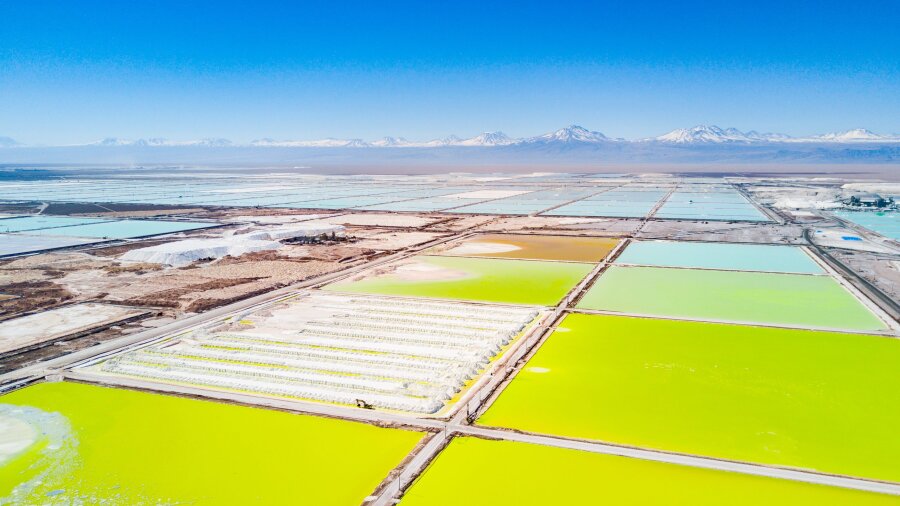Best Biotechnology Lawyers in Costa Rica
Share your needs with us, get contacted by law firms.
Free. Takes 2 min.
Or refine your search by selecting a city:
List of the best lawyers in Costa Rica
We haven't listed any Biotechnology lawyers in Costa Rica yet...
But you can share your requirements with us, and we will help you find the right lawyer for your needs in Costa Rica.
Find a Lawyer in Costa RicaAbout Biotechnology Law in Costa Rica
Costa Rica is a regional leader in biotechnology innovation, with a strong focus on sustainable agriculture, environmental protection, and healthcare applications. The field includes genetic engineering, bio-pharmaceuticals, agricultural biotech, and the use of genetic resources from the country's rich biodiversity. Biotechnology law in Costa Rica encompasses a mix of intellectual property rights, environmental regulations, biosafety standards, and international agreements such as the Convention on Biological Diversity and the Nagoya Protocol.
Biotechnology activities are regulated to ensure ethical practices, protect biodiversity, and promote public safety. Various governmental bodies oversee research, patenting, commercialization, and the export or import of biotech products. Businesses, research institutions, and individuals navigating this sector often encounter unique legal challenges.
Why You May Need a Lawyer
Legal issues in biotechnology can be complex and highly specialized. You may need a lawyer in situations such as:
- Securing patents for a biotechnological invention or process.
- Navigating compliance with national and international biosafety standards.
- Signing agreements for access to genetic resources or benefit-sharing under the Nagoya Protocol.
- Resolving disputes over intellectual property ownership, trademarks, or licensing.
- Facilitating regulatory approvals for the commercialization of new biotech products.
- Understanding and meeting the requirements of clinical trials or agricultural field tests.
- Advising on technology transfer agreements with academic or research institutions.
- Dealing with bioethics or risk assessment procedures in biotechnology projects.
Local Laws Overview
Biotechnology in Costa Rica is governed by a combination of local statutes and international treaties. Some of the most relevant legal aspects include:
- Intellectual Property Law - The Costa Rican Intellectual Property Registry manages patent applications for biotechnological inventions, including processes, microorganisms, and genetically modified organisms, with some exclusions related to naturally occurring discoveries.
- Biosafety Regulations - The National Technical Biosafety Commission (CTNBio) supervises the importation, use, and release of genetically modified organisms (GMOs), aligning with Law No. 7664.
- Access and Benefit Sharing - Costa Rica enforces access and benefit sharing mechanisms in accordance with its Biodiversity Law (Law No. 7788) and international agreements, requiring permits to utilize genetic resources from local flora and fauna.
- Health and Environmental Authorities - Any biotechnological product intended for health or agricultural use must comply with standards set by authorities like the Ministry of Health, Ministry of Agriculture and Livestock (MAG), and the National Phytosanitary Service.
- Bioethics Oversight - Research projects involving humans or animals must abide by stringent bioethics regulations, often overseen by local and national ethics committees.
Staying compliant requires a clear understanding of these overlapping legal frameworks, making specialized legal advice invaluable.
Frequently Asked Questions
What types of biotechnology are regulated in Costa Rica?
Regulated areas include agricultural biotechnology, pharmaceuticals, environmental biotechnologies, and the use of genetically modified organisms. Rules apply to research, commercial release, imports, and exports involving biotech products.
Is it possible to patent a biotechnological invention in Costa Rica?
Yes, inventions involving genetic sequences, microorganisms, and biotechnological processes can be patented, provided they meet legal criteria for novelty, inventive step, and industrial applicability. However, naturally occurring discoveries may not be patentable.
What permits are required to use genetic resources from Costa Rican biodiversity?
Access to genetic resources for research or commercial use requires permits from the National Commission for the Management of Biodiversity (CONAGEBIO), and beneficiaries must agree to benefit-sharing arrangements with the state or local communities.
How are genetically modified organisms (GMOs) regulated?
GMOs are strictly regulated by the National Technical Biosafety Commission. Import, cultivation, or release of GMOs requires prior assessment, authorization, and ongoing monitoring.
Do clinical trials in biotechnology need special approvals?
Yes, clinical trials involving biotech products must be approved by the Ministry of Health and local ethics committees. Trials must conform to national ethics guidelines and international standards.
What is the Nagoya Protocol and does it apply in Costa Rica?
The Nagoya Protocol is an international agreement ensuring fair and equitable sharing of benefits from the use of genetic resources. Costa Rica is a signatory and has implemented related laws governing access and benefit-sharing.
How are disputes over biotechnology patents resolved?
Patent disputes are handled through administrative channels at the Intellectual Property Registry and may be appealed to Costa Rican courts. Legal assistance is essential for defending or challenging patent rights.
Are there restrictions on importing or exporting biotechnological materials?
Yes, imports or exports of genetic resources, biotechnological samples, and GMOs are subject to strict controls and require permits from relevant governmental agencies.
What are the main challenges for foreign companies in Costa Rican biotechnology?
Foreign entities often face challenges related to compliance with local laws, understanding benefit-sharing obligations, protecting patents, and navigating complex regulatory approval processes.
How can I ensure my biotech project is environmentally compliant?
Projects should undergo environmental impact assessments and obtain all necessary permits from agencies like the National Environmental Technical Secretariat (SETENA), in addition to abiding by biosafety and biodiversity laws.
Additional Resources
If you need further guidance, these resources can be helpful:
- Ministry of Science, Innovation, Technology and Telecommunications (MICITT)
- Costa Rican Intellectual Property Registry
- National Commission for the Management of Biodiversity (CONAGEBIO)
- National Technical Biosafety Commission (CTNBio)
- National Council for Science and Technology (CONICIT)
- Costa Rican Bar Association (for certified legal professionals)
- Local universities with biotechnology law faculties
Next Steps
Seeking legal assistance in biotechnology requires careful selection of professionals familiar with the sector. Consider the following steps:
- Identify the specific legal issue you are facing (e.g., patents, compliance, access to resources).
- Compile documentation, permits, and correspondence related to your biotechnology activity.
- Contact the relevant governmental bodies for initial information or guidance.
- Consult a lawyer specializing in biotechnology and intellectual property law in Costa Rica. Ensure they have experience with regulatory and international frameworks.
- Discuss your goals, potential legal risks, and compliance requirements in detail with your legal advisor.
- Stay informed of changes in local and international regulations that may affect your activities.
By following these steps and partnering with a qualified lawyer, you can navigate Costa Rica's biotechnology landscape effectively and legally.
Lawzana helps you find the best lawyers and law firms in Costa Rica through a curated and pre-screened list of qualified legal professionals. Our platform offers rankings and detailed profiles of attorneys and law firms, allowing you to compare based on practice areas, including Biotechnology, experience, and client feedback.
Each profile includes a description of the firm's areas of practice, client reviews, team members and partners, year of establishment, spoken languages, office locations, contact information, social media presence, and any published articles or resources. Most firms on our platform speak English and are experienced in both local and international legal matters.
Get a quote from top-rated law firms in Costa Rica — quickly, securely, and without unnecessary hassle.
Disclaimer:
The information provided on this page is for general informational purposes only and does not constitute legal advice. While we strive to ensure the accuracy and relevance of the content, legal information may change over time, and interpretations of the law can vary. You should always consult with a qualified legal professional for advice specific to your situation.
We disclaim all liability for actions taken or not taken based on the content of this page. If you believe any information is incorrect or outdated, please contact us, and we will review and update it where appropriate.







